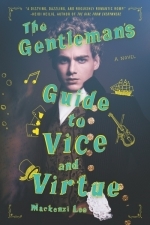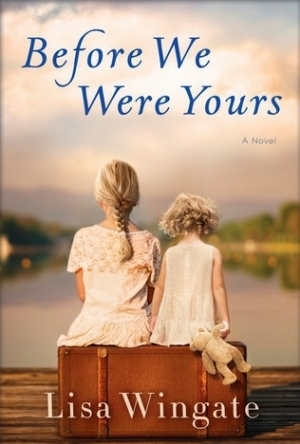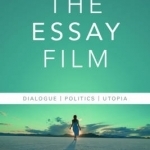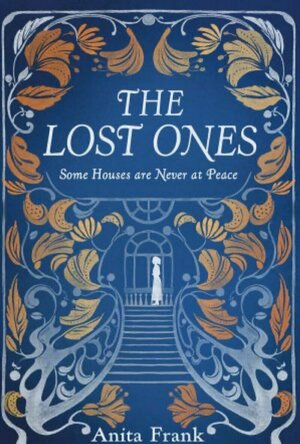Search
Search results
Louise (64 KP) rated The Unseeing in Books
Jul 2, 2018
I am a lover of Historical fiction especially Victorian London so when I read the synopsis of ‘The Unseeing’ I knew I had to read it. This is Anna Mazzola’s debut novel and I can tell you it certainly delivered.
The year is 1837 and Sarah Gale is sentenced to be hung, she is believed to have aid and abet James Greenacre in the death of Hannah Brown. Sarah Gale was having an on/off relationship with Greenacre and living with him in his home until he met Hannah. Hannah Brown was a spinster with a bit of money and business’s in her possession,until her body parts were found randomly around London.Greenacre a conniving man that he is only wanted Hannah for her money and threw Sarah out a few days before Christmas. A few days after Christmas Hannah Brown is gone and Sarah Gale is back in Greenacre’s bed. Sarah is adamant that she knows nothing about the disappearance or death of Hannah Brown, but no-one believes her.
Sarah Gale and a Women’s institute have requested Sarah to be pardoned as she is to be hung but is adamant she knows nothing. Edmund Fleetwood has been assigned the case, his job is to see if she will talk or if there is any new evidence. This is one of the most spoken about cases of the time and this could be the career break that Edmund needs, however Sarah Gale is still adamant that she knows nothing. Can this meek, pale women really be involved in a murder?
This book was amazing, I felt like I had been transported to London in 1837. The writing was so atmospheric, the descriptions of the sounds, the streets and the way the characters spoke just blew me away, and it was consistent throughout the book. The Unseeing is a slow burn book that drip feeds you information slowly and you start piecing it together like a jigsaw puzzle. I was definitely hooked and needed to know how Hannah had come to be in pieces around London and what was going to happen to Sarah. There is a twist and I didn’t see it coming whatsoever and was left shocked for some time.
This book is based on a true crime that happened in 1837 and is known as the Edgeware Murder. Sarah Gale and John Greenacre are the names of the actual people involved and the court scripts can be seen at the Old Bailey website. You can definitely tell that the Mazzola had knowledge of the justice system as it was very well researched. I loved that Mazzola managed to make a fictional book out of a true crime and it makes it even more intriguing to read. It does make you think of how the justice system failed a lot of people back in Victorian times.
I will definitely be reading anything else Anna Mazzola release and recommend this book you are interested true crime and historical fiction.
I rated this 4 out of 5 stars
The year is 1837 and Sarah Gale is sentenced to be hung, she is believed to have aid and abet James Greenacre in the death of Hannah Brown. Sarah Gale was having an on/off relationship with Greenacre and living with him in his home until he met Hannah. Hannah Brown was a spinster with a bit of money and business’s in her possession,until her body parts were found randomly around London.Greenacre a conniving man that he is only wanted Hannah for her money and threw Sarah out a few days before Christmas. A few days after Christmas Hannah Brown is gone and Sarah Gale is back in Greenacre’s bed. Sarah is adamant that she knows nothing about the disappearance or death of Hannah Brown, but no-one believes her.
Sarah Gale and a Women’s institute have requested Sarah to be pardoned as she is to be hung but is adamant she knows nothing. Edmund Fleetwood has been assigned the case, his job is to see if she will talk or if there is any new evidence. This is one of the most spoken about cases of the time and this could be the career break that Edmund needs, however Sarah Gale is still adamant that she knows nothing. Can this meek, pale women really be involved in a murder?
This book was amazing, I felt like I had been transported to London in 1837. The writing was so atmospheric, the descriptions of the sounds, the streets and the way the characters spoke just blew me away, and it was consistent throughout the book. The Unseeing is a slow burn book that drip feeds you information slowly and you start piecing it together like a jigsaw puzzle. I was definitely hooked and needed to know how Hannah had come to be in pieces around London and what was going to happen to Sarah. There is a twist and I didn’t see it coming whatsoever and was left shocked for some time.
This book is based on a true crime that happened in 1837 and is known as the Edgeware Murder. Sarah Gale and John Greenacre are the names of the actual people involved and the court scripts can be seen at the Old Bailey website. You can definitely tell that the Mazzola had knowledge of the justice system as it was very well researched. I loved that Mazzola managed to make a fictional book out of a true crime and it makes it even more intriguing to read. It does make you think of how the justice system failed a lot of people back in Victorian times.
I will definitely be reading anything else Anna Mazzola release and recommend this book you are interested true crime and historical fiction.
I rated this 4 out of 5 stars
MaryAnn (14 KP) rated Winning Miss Winthrop (Regency Brides: A Promise of Hope #1) in Books
Mar 5, 2019
Carolyn Miller introduces her new series The Regency Brides. In the first book, we are introduced to Catherine Winthrop who has been recovering from feeling rejected by the man who stole her heart and rejected her love, she is finally feeling like she can move on.
When Catherine's father suddenly passes away, she not only loses the only home that she ever knew, but who moves in and takes her father's title? None other than Jonathan Carlew, the man who broke her heart.
With the rumors about Jonathan's birth and being a tradesman find him without the approval of the ladies parents, but now suddenly finding himself well to do and with a title, he now has plenty of prospects for a wife. Jonathan finds that his responsibilities keep him too busy, but also he only thinks of the woman to whom he lost his heart many years ago.
Can time and forgiveness bring them together?
In this novel, we see the value of forgiveness and how holding a grudge can hurt not only ourselves but those around us. It also teaches how we should always take time to listen to those who are precious. to us.
Carolyn Miller has cleverly brought back some of our favorite characters that not only strengthens the storyline but adds some familiarity and nostalgia for her followers who have read her other novels.
This book was an enjoyment to read I look forward to the next in the series "Serena's Secret"
A must-read for those who like to read historical fiction.
When Catherine's father suddenly passes away, she not only loses the only home that she ever knew, but who moves in and takes her father's title? None other than Jonathan Carlew, the man who broke her heart.
With the rumors about Jonathan's birth and being a tradesman find him without the approval of the ladies parents, but now suddenly finding himself well to do and with a title, he now has plenty of prospects for a wife. Jonathan finds that his responsibilities keep him too busy, but also he only thinks of the woman to whom he lost his heart many years ago.
Can time and forgiveness bring them together?
In this novel, we see the value of forgiveness and how holding a grudge can hurt not only ourselves but those around us. It also teaches how we should always take time to listen to those who are precious. to us.
Carolyn Miller has cleverly brought back some of our favorite characters that not only strengthens the storyline but adds some familiarity and nostalgia for her followers who have read her other novels.
This book was an enjoyment to read I look forward to the next in the series "Serena's Secret"
A must-read for those who like to read historical fiction.
Erika Kehlet (21 KP) rated House of Thieves in Books
Feb 21, 2018
How far would you go to save the life of a loved one? Thats the question that architect John Cross is forced to ask himself after being confronted with evidence of his sons gambling problem and subsequent debt. The amount is more than his son, or he himself, could ever hope to repay. To keep his son from being killed by the gang holding the debt, John uses his specialized knowledge of local buildings to help the gang plan burglaries, with the understanding that with each job, some of the debt will be forgiven.
I admit that I was expecting a little more of a mystery element after reading the blurb, but even without the mystery this book takes you on an enjoyable trip to the past. The story takes place in New York, 1886, and is rich with descriptions of society life, rat baiting, etiquette, gambling dens, and almost anything else you might want to know about the time period. I did like the way that almost every member of Johns family, without his knowledge, flaunted tradition and expectations to pursue happiness in their own way, even though to be found out would have meant their ruin and social outcast. It was hard not to root for them even when you knew they were doing wrong.
If you are a fan of historical fiction (or if you enjoyed the movie Gangs of New York), then I highly recommend this one.
Note: I was provided with a free copy of this book from NetGalley in exchange for an honest review.
I admit that I was expecting a little more of a mystery element after reading the blurb, but even without the mystery this book takes you on an enjoyable trip to the past. The story takes place in New York, 1886, and is rich with descriptions of society life, rat baiting, etiquette, gambling dens, and almost anything else you might want to know about the time period. I did like the way that almost every member of Johns family, without his knowledge, flaunted tradition and expectations to pursue happiness in their own way, even though to be found out would have meant their ruin and social outcast. It was hard not to root for them even when you knew they were doing wrong.
If you are a fan of historical fiction (or if you enjoyed the movie Gangs of New York), then I highly recommend this one.
Note: I was provided with a free copy of this book from NetGalley in exchange for an honest review.
BookwormMama14 (18 KP) rated Tried and True in Books
Jan 2, 2019
Idaho Territory, 1866: The Civil War has ended, but the charade has not. Kylie Wilde and her sisters Shannon and Bailey lived as men throughout the War. And at their father's command, are now homesteading as men.
Tried & True is a gripping journey about forgiveness and finding true identity. Kylie's demanding Pa is sick with grief over the loss of his son and does not know how to take care of, or love his daughters for who they are. Powerful cattleman, Gage Coulter, would like nothing better than to reclaim Kylie's land as his own. Aaron Masterson is captivated by Kylie from the moment they meet. But Aaron wants to live a life in the mountains and Kylie longs for the civilization of the East. Attempts to scare her off her land by persons unknown, opens doors Kylie never dreamed of. Throughout her journey, her faith is tested and tried. But she stands strong and remains true to herself.
It was next to impossible for me to put this book down. I was transported to the mountains of Idaho in the height of the land rush every time I began to read. Feeling the fear, the love, the determination that Kylie felt. Very captivating. I am especially grateful to Mary Connealy for the way she is able to portray a Historical Fiction "Romance" very tastefully. I am excited to read the rest of the series!
As part of their blogger reviewer program, I received a free digital copy of this book from Bethany House.
Tried & True is a gripping journey about forgiveness and finding true identity. Kylie's demanding Pa is sick with grief over the loss of his son and does not know how to take care of, or love his daughters for who they are. Powerful cattleman, Gage Coulter, would like nothing better than to reclaim Kylie's land as his own. Aaron Masterson is captivated by Kylie from the moment they meet. But Aaron wants to live a life in the mountains and Kylie longs for the civilization of the East. Attempts to scare her off her land by persons unknown, opens doors Kylie never dreamed of. Throughout her journey, her faith is tested and tried. But she stands strong and remains true to herself.
It was next to impossible for me to put this book down. I was transported to the mountains of Idaho in the height of the land rush every time I began to read. Feeling the fear, the love, the determination that Kylie felt. Very captivating. I am especially grateful to Mary Connealy for the way she is able to portray a Historical Fiction "Romance" very tastefully. I am excited to read the rest of the series!
As part of their blogger reviewer program, I received a free digital copy of this book from Bethany House.
Merissa (13710 KP) rated Shades of Milk and Honey (Glamourist Histories, #1) in Books
Dec 17, 2018
This book is a genteel 'Regency' style book with a dash of magic - imagine Pride & Prejudice with glamour. Imagine a world where as well as improving her sewing, painting and pianoforte, a young lady had to opportunity to decorate and embellish, with the help of glamours. Unfortunately, due to the times, this is only allowed in home (where it is encouraged) but never, for a lady, can it become anything else.
This is a world where ladies are still set to 'marry well', come out in Society and become spinsters if they are not married within a seemly time. Jane is roughly the age where she can be a chaperone, rather than being chaperoned, and she is quite content with this although she does have her eye set on someone. Unfortunately he seems rather more attracted to her sister, the beautiful Melody. However, as we all know, although the surface may be calm in these books, the passion runs deep. Before she knows it, Jane is at the heart of secrets and trying to do her best by everyone.
I thought this book was very well written, which characters that you can associate with. You are left guessing right until the end as to how this will work out for everyone. Mary Robinette Kowal has done a wonderful job of keeping the story moving along but still giving you time to adjust to the period in which it is set. A lovely light read perfect for any historical fiction fans out there.
This is a world where ladies are still set to 'marry well', come out in Society and become spinsters if they are not married within a seemly time. Jane is roughly the age where she can be a chaperone, rather than being chaperoned, and she is quite content with this although she does have her eye set on someone. Unfortunately he seems rather more attracted to her sister, the beautiful Melody. However, as we all know, although the surface may be calm in these books, the passion runs deep. Before she knows it, Jane is at the heart of secrets and trying to do her best by everyone.
I thought this book was very well written, which characters that you can associate with. You are left guessing right until the end as to how this will work out for everyone. Mary Robinette Kowal has done a wonderful job of keeping the story moving along but still giving you time to adjust to the period in which it is set. A lovely light read perfect for any historical fiction fans out there.
ClareR (6054 KP) rated The Lost Ones in Books
Dec 3, 2019
The Lost Ones is a gothic horror set during the First World War. It's 1917and Stella Marcham has already experienced a traumatic war. She has lost her fiancé, and seen more than most women as a nurse on the front line. She is grief stricken and it's highly possible that she has PTSD. Her brother-in-law asks Stella to go and keep her pregnant sister company at his country home, as she is experiencing strange occurrences, and he feels that she needs some support. He doesn't believe Stella's sister when she says that she can hear a child crying: there are no children at Greyswick.
I loved this book! it made me jump, gasp out loud and burst out in nervous laughter. It's worth bearing in mind that I was on a long train journey as I was reading this, so there are probably a number of people between Skegness and Chester who either think I'm a little unhinged, or are dying to know what I was reading (I'm considering wearing some sort of badge on long train journeys, that says 'currently reading (insert book name here)'. I'm sure it'll explain to people my frankly erratic behaviour in cases like this.).
Anyway, this book deserves any hype it gets, and I strongly suggest that if you're a fan of historical fiction with a gothic bent, you go out, buy and read this immediately. And read it in public. I can't always be the one to show herself up like this.
Many thanks to NetGalley and HQ for my copy of this book.
I loved this book! it made me jump, gasp out loud and burst out in nervous laughter. It's worth bearing in mind that I was on a long train journey as I was reading this, so there are probably a number of people between Skegness and Chester who either think I'm a little unhinged, or are dying to know what I was reading (I'm considering wearing some sort of badge on long train journeys, that says 'currently reading (insert book name here)'. I'm sure it'll explain to people my frankly erratic behaviour in cases like this.).
Anyway, this book deserves any hype it gets, and I strongly suggest that if you're a fan of historical fiction with a gothic bent, you go out, buy and read this immediately. And read it in public. I can't always be the one to show herself up like this.
Many thanks to NetGalley and HQ for my copy of this book.
RO
Race on the QT: Blackness and the Films of Quentin Tarantino
Book
Winner, Ray Pat Browne Award for Best Reference/Primary Source Work in Popular and American Culture,...

Gentleman's Guide To Vice And Virtue
Book
SIMON VS. THE HOMOSAPIENS meets the 1700s in this hilarious and swashbuckling standalone teen...

Before We Were Yours
Book
Memphis, 1939. Twelve-year-old Rill Foss and her four younger siblings live a magical life aboard...
Historical fiction

The Essay Film: Dialogue, Politics, Utopia
Elizabeth Astrid Papazian and Caroline Eades
Book
With its increasing presence in a continuously evolving media environment, the essay film as a...

